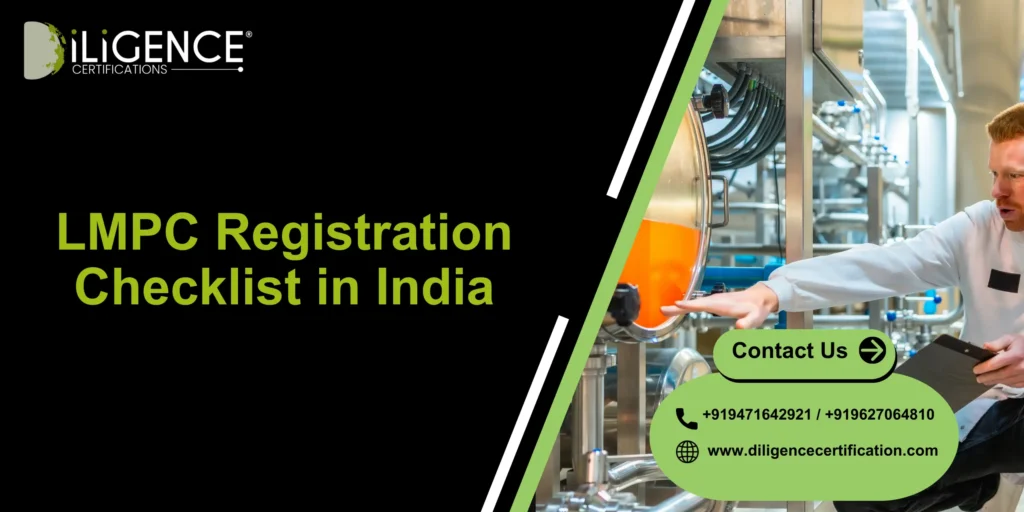- Assurance of Performance and Accuracy: The certification guarantees the strict accuracy classes range of the Watt-Hour and VAR-Hour Meters performance on both the active (kWh) and reactive (kVARh) energy measures required.
- Compliance with IS 14697: The certification represents that the meters met specific structural design, performance, environmental conditions and performance testing, all part of Indian standard IS 14697.
- Providing Consumer Confidence and Fairness: The certifications establish trust, while helping reduce disputes between utilities and consumers to provide energy measures in a standard and uniform manner.
- Requirement for Most Markets: The certification is often required in government tendering processes, and before installation for the industrial market and from utilities. Therefore, it is essential for the manufacturer to have a BIS certification in advance to legally sell the meter in India.
- Quality Assurance and Responsiveness: Certification always requires testing and laboratory review of the final products, factory audits and monitoring to maintain and ensure ongoing compliance with the ISI Mark on the meter.
Introduction
In today’s energy sector, accurately measuring electric consumption is vital for consumers and utilities alike. In an industrial and commercial environment, AC static transformer-operated watt-hour (kWh) and VAR-hour (kVARh) meters are extensively used to measure active energy and reactive energy with high accuracy. In terms of performance, reliability or compliance with legal and technical requirements, such meters must comply with the provisions of IS 14697 and obtain BIS certification. Class 0.2S and 0.5S BIS-certified meters, in particular, provide a high degree of accuracy, limit disputes over billing, and provide confidence to manufacturers, utilities and end-users. Ultimately, the importance of BIS certification is key to maintaining a transparent and efficient power distribution system.

What is BIS Certification for AC Static Transformer Operated Watt-Hour and VAR-Hour Meters
BIS Certification for AC Static Transformer Operated Watt-Hour and VAR-Hour Meters is the conformity certification provided by the Bureau of Indian Standards (BIS) for indicating conformity to Indian Standard IS 14697 with respect to quality, accuracy, and performance of the meters measuring active energy (kWh) and reactive energy (kVARh) in electrical systems. These meters generally use current transformers (CT) and voltage transformers (VT) for supporting high voltage and current being measured.
BIS Certification ensures:
- Measurement is within appropriate Class 0.2S or 0.5S rated error.
- Safety, reliability, and endurance in many environmental or electrical senses.
- Acceptance of standards on production and/or testing of the manufacturer.
- Allow consumers and utility companies to depend on the billing information and records of their consumption.
- Acceptance and approved for use in India for industrial, commercial, and large-load applications.
Overview of IS 14697

- IS 14697 outlines the performance and technical specifications for static energy meters in detail. Mentioned below are some of the highlighted elements ISI MARK
- General Requirements: This outlines the general performance, safety, and design requirements of static meters.
- Accuracy Class: Defines the limits of permissible error for various load conditions. For billing purposes in high-value industrial or commercial applications, Class 0.2S and 0.5S meters are considered high accuracy meters.
- Environmental Conditions: The meters should perform satisfactorily under specified conditions of temperature, humidity, and mechanical stress.
- Metering Functions: The meters shall record active energy (kWh) and reactive energy (kVARh) accurately for different load profiles.
- Testing Procedures: Routine, type and acceptance testing shall verify compliance with the technical requirements.
Why BIS Certification is Mandatory for AC Static Transformer Operated Watt-Hour and VAR-Hour Meters
BIS Certification is important for AC Static Transformer Operated Watt-Hour and VAR-Hour Meters. Accuracy, assurance and compliance are important for utilities and their customers in any high voltage industrial application. These meters measure active (kWh) and reactive energy (kVARh) in a high voltage or industrial environment, and even small inaccuracies or measurement uncertainty can mean significant amounts of financial loss to the customer and can detrimentally affect utility revenue.
Key Reasons for BIS Certification:
- Assurance of Correct Billing: Certified meters provide classes of accuracy (0.2S & 0.5S) to reduce arguments between utilities and consumers.
- Complies with Indian Standards (IS 14697): BIS Certification ascertains that the meters are technically safe, and meets performance specifications as per IS 14697.
- Consumer Assurance: To the end user, certified meters serve as a basis for assurance that the energy measured is dependable and credible.
- Legal and Regulatory Requirement: In commercial, industrial and high usage settings, it is a requirement to measure energy with a quality, certified meter as stipulated in the Indian electricity regulations.
- Quality Assurance for Manufacturers: The use of a certified meter ensures approved production facilities, testing, standards and effective surveillance to ensure meters will provide performance standards.
Key Highlights of BIS Certification for AC Static Transformer Operated Watt-Hour and VAR-Hour Meters
- Compliance with IS 14697: Confirms that the meters satisfy specified technical, performance, and safety requirements outlined in the Indian Standard for static transformer operated meters.
- Accuracy Classes: Includes Class 0.2S and 0.5S meters, ensuring accuracy class of active energy (kWh) and reactive energy (kVARh) and during varying loads.
- Quality and Assurance: Indicates that meters have quality, are stable, and can operate in various environmental and electrical conditions.
- Legal and Regulatory Approval: Authorizes manufacturers to sell meters in India for industrial purposes and commercial or high usage, meeting the statutory requirements.
- Confidence and Transparency for end-users: Provides assurances to utilities and end-users the accuracy of billing, dispute resolution, and establishing trust in energy measures.
- Testing and Factory Surveillance: Provides laboratory tests, type tests, and periodic factory inspections to ensure the continuing compliance and quality of meters based on BIS.
- Market Credibility: Meters that are BIS must have the ISI mark, which establishes trust in the meters, and provides opportunities for government and private sector tenders.
Step-by-Step Process of BIS Certification for AC Static Transformer Operated Watt-Hour and VAR-Hour Meters

Step 1: Submit Application
- The manufacturer will submit the application to BIS which will contain:
- Technical literature and specifications on the meters,
- Samples of the meters for testing,
- Details of the manufacturing facility, and
- If applicable, existing test reports.
Step 2: Document Review
- After the submission has been sent to BIS, the documents will be reviewed to determine whether the applications meet the requirements of the standard IS 14697.
- If the Bureau finds that the ISO conformance standards are not met, the manufacturer will issue a notification of either changes that need to be made or of more information that needs to be submitted.
Step 3: Benchmark Testing
- BIS would then send all the samples to NABL Accredited laboratory for testing.
- Laboratory testing would include trials of the following:
- Testing for accuracy of Class 0.2S and Class 0.5S meters,
- Trials for endurance for hot environments, humid environments, and other environments.
- Tests of the mechanical and electrical safety of the meters
- Trials of the meters performance while load and under varying conditions.
Step 4: Facility Inspection
- BIS can inspect the manufacturing facility to verify:
- Quality control programs
- Consistency of the manufacturing process
- Proper calibration and testing assurance.
Step 5: Certification Issuance
- Once the factory has consistently passed all tests and requirements, BIS will issue a certification license.
- The BIS certification allows the manufacturer to use the ISI mark on the meters.
Step 6:Surveillance and Re-certification
- BIS will perform surveillance audits periodically to ensure compliance.
- The certification license will need to be renewed every few years (typically every 2-3 years).
- Certifications can also be suspended and revoked if it is determined that the factory is not compliant or there are lapses in the factory’s quality.
Benefits of receiving BIS Certification for AC Static Transformer Operated Watt-Hour and VAR-Hour Meters
1. Ensures Accuracy and Reliability
BIS certification requires that the meters are accurate to rates of 0.2S and 0.5S for active (kWh) and reactive (kVARh) energy. Therefore accuracy in billing will be improved and overall confidence in the end-user as well as the clients will increase.
2. Certified to Indian Standard
Obtaining BIS Certification demonstrates that the amount has met the IS 14697 standards relating to design, performance, safety and environmental. This shows the energy meters are solid, reliable and acceptable for Indian conditions.
3. Certified Approved for Use
The Bureau of Indian Standards certified meters are governmental approved for use in industrial, commercial, and even other high usage clients. Many government tenders and multi usage utility contracts are criteria for qualification along the road to market acceptance.
4. Builds Residential/End-User Trust
BIS Certification offers a utility recognition of quality a consumer/residential end-user can be trustful that the energy being recorded is legitimate, credible, and transparent energy bills receivers of the energy meter will see. The meaning behind the recognition of the mark may decrease disputes and enhance credibility to the utility companies as well to the manufacturers.
5. Quality Assurance Certification for the Manufacturer
As part of the certification, the manufacturer is subjected to detailed physical testing and inspections of the manufacturer’s factory to reinforce the manufacturer’s commitment to quality in production. The certification also involves ongoing monitoring to assure compliance and quality of the product.
6. Competitiveness in the Marketplace
The certified meters will display the ISI mark and increase the reputation of the manufacturer while providing a competitive advantage. Certified meters also allow the manufacturer to supply certified product meters to government and private tenders.
Timelines, Costs, Validity & Renewal
- Timelines: It generally takes between 3–6 months from the time an application is received until certification is issued, inclusive of testing to the time of factory inspection.
- Costs: This depends on how many models are involved, costs of lab-testing, and total factory inspection fees (noting Class 0.2S meters cost more).
- Validity: Certification is valid for 2–3 years in general.
- Renewal: ISI mark is retained through periodic factory audits every few years and prior to the expiration of certification confirming compliance.
Why Choose Diligence Certifications
- Expertise in BIS Certification: Diligence Certifications possesses significant experience in guiding manufacturers of AC static transformer-operated meters through the BIS certification procedure to comply with IS 14697.
- All-Inclusive Support: Diligence will assist from initial documentation completion, sample preparation, coordinated laboratory testing, to factory audit and submission of the licensing application, ensuring an efficient process.
- Time and Cost Saving: With a structured approach to the BIS process and experience, Diligence will minimize inconvenience, delays, and unnecessary cost for prompt authorization.
- Accuracy & Compliance Sustained: Diligence ensures that your meters would meet the Class 0.2S & 0.5S accuracy requirements, resulting in a more reliable product and enhancement of market acceptance.
- Preferred Partner for Manufacturers: Numerous industrial and commercial clients choose Diligence Certifications for expert guidance, support and certification of BIS of their meters so that they could operate with confidence locally and internationally.
Conclusion
The BIS mark for AC Static Transformer Operated Watt-Hour and VAR-Hour Meters of Class 0.2S and 0.5S to the standard of IS 14697 is significant. A meter with a BIS mark captures accurate active and reactive energy measurements, prevents disputes in billing, and adds one more step towards creating trust between utilities and consumers. Furthermore, the BIS mark provides credibility in the market, a path toward government tender offers, and is part of legal compliance for manufacturers. Working with Diligence Certifications will keep the entire process seamless and avoid obstacles, while at the same time, provide you an opportunity to work with qualified specialists toward the approval of your meter code treasure, and achieve timeline goals. The complete process for all of your meters ensures we are 100% compliant on regulatory and technical aspects of your products for market-ready and, more importantly, reliable products.
Frequently Ask Questions
What is BIS Certification for AC static transformer operated meters?
BIS Certification is a formal certification by the Bureau of Indian Standards (BIS) that states that the meter fulfills the IND 14697, regarding accuracy, quality and performance.
Why is BIS Certification required for these meters?
To validate the accuracy and reliability for legal or regulatory purposes. Certified meters reduce disputes in billing and are needed in industrial, commercial and heavy load installations.
What is IS 14697?
IS 14697 is the Indian Standard that states the design, construction, performance, environmental conditions and tests for a AC static transformer operated energy meter.
What are Class 0.2S and 0.5S meters?
he class defines the accuracy of the meter. Class 0.2S: ± 0.2% maximum permissible error
Class 0.5S: ± 0.5% maximum permissible error
These are more accurate and are therefor used for billing in industrial and commercial applications.
What type of energy do these meters measure?
They measure active energy (kWh) and reactive energy (kVARh) in electrical energy systems and typical utilize CT (current transformer) and VTs (voltage transformer).
What does the BIS certification process involve?
The BIS process is as follows:
Submit application
Submit Technical documentation
Assessment of documents
Testing in laboratory accredited by NABL
Factory inspection
Certification and ISI mark issued
Surveillance and re-certification
How long does the BIS certification process take?
The entire process typically takes 3- 6 months. This includes completeness of testing and factory audit.
What is the duration of BIS certification?
BIS certification is typically valid for a period of 2–3 years, after which renewal is required through compliance audits.
What is the advantage of a BIS certification on my meters?
The BIS certification provides:
Accurate and consistent measurements
Complies with IS 14697
Credibility in the marketplace with the ISI mark
Consumer confidence and elimination of bill disputes
Approval for industrial / commercial uses
Why choose Diligence Certifications to assist me with my BIS approval?
Diligence Certifications provides expert consultation, end-to-end support, faster processing, and ensures your meters will meet the Class 0.2S & 0.5S accuracy standard. We make the BIS certification process easy and efficient.








 BIS Certification
BIS Certification
 CDSCO
CDSCO
 CPCB
CPCB
 LMPC
LMPC
 WPC Approval
WPC Approval
 Global Approvals
Global Approvals
 TEC
TEC
 ARAI
ARAI
 BEE
BEE
 ISO Certification
ISO Certification
 Drone Registration
Drone Registration
 NOC For Steel
NOC For Steel



















 Business Registration
Business Registration















 Legal Services
Legal Services
 Trademark Registration
Trademark Registration
 Copyright Registration
Copyright Registration
 Patent Registration
Patent Registration















































